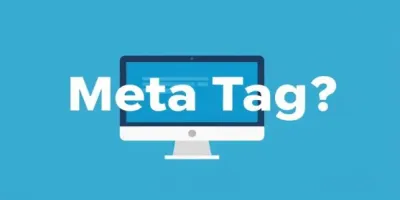What Are Meta Tags
Meta tags are small snippets of HTML code that live in the <head> section of a webpage. While they aren’t directly visible to users browsing a website, they are crucial for helping search engines and social media platforms understand what your content is about.
In this article, we’ll explore what meta tags are, the different types you should know, how they affect SEO, and how you can easily generate them using our Meta Tag Generator Tool.
What Are Meta Tags?
Meta tags provide metadata—information about your web page—to search engines, browsers, and other services. These tags help control how your page appears in search results, how it behaves in a browser, and how it is displayed when shared on social platforms.
They don’t appear on the page itself but exist in the source code. For example, the following is a simple meta tag for description:
<meta name="description" content="This is a brief summary of the web page.">
Why Meta Tags Matter for SEO
Meta tags influence how search engines crawl and index your pages. While they’re not the only factor, they can greatly impact:
- Click-through rate (CTR): A well-written meta description can increase the chances of someone clicking your result in search.
- Content relevance: Title and keyword tags give context to your page content.
- Crawl behavior: Tags like
robotstell search engines what to index and what to skip. - Social media appearance: Open Graph and Twitter tags define how your link looks when shared.
Common Types of Meta Tags
Here’s a breakdown of essential meta tags you should be using:
1. Title Tag
The title tag defines the title of your page. It appears in search results, browser tabs, and when shared on social platforms.
<title>Free Online Tools - Weblaro</title>
2. Meta Description
This tag provides a brief summary of the page. Search engines may display this below your title in results.
<meta name="description" content="Explore Weblaro's collection of free online tools to boost your productivity.">
3. Robots Tag
Controls how search engines crawl and index the page.
<meta name="robots" content="index, follow">
4. Viewport Tag
Ensures responsive design across devices, particularly mobile.
<meta name="viewport" content="width=device-width, initial-scale=1.0">
5. Canonical Tag
Prevents duplicate content issues by specifying the preferred URL for a page.
<link rel="canonical" href="https://example.com/my-page">
6. Open Graph Tags (for Facebook, LinkedIn)
These tags define how your content appears when shared on social media.
<meta property="og:title" content="Check Out Our Free Online Tools"> <meta property="og:description" content="Weblaro offers 30+ free tools for webmasters, developers, and content creators."> <meta property="og:url" content="https://weblaro.com"> <meta property="og:image" content="https://weblaro.com/assets/preview.png">
7. Twitter Card Tags
Enhance how your links appear on Twitter/X.
<meta name="twitter:card" content="summary_large_image"> <meta name="twitter:title" content="Weblaro – Free Online Tools"> <meta name="twitter:description" content="Speed up your workflow with Weblaro's handy toolset."> <meta name="twitter:image" content="https://weblaro.com/assets/twitter-preview.png">
Best Practices for Using Meta Tags
- Keep your title tag under 60 characters so it doesn’t get truncated in search results.
- Write unique descriptions for every page—don’t duplicate across your site.
- Don’t stuff keywords. Meta tags should sound natural and helpful.
- Include Open Graph and Twitter tags to improve social share appearance.
- Test your tags using tools like Google Rich Results or Facebook Sharing Debugger.
How to Easily Create Meta Tags
If you're unsure where to start or want to avoid manually writing HTML code, try our Meta Tag Generator Tool. It helps you build SEO-friendly meta tags in just a few clicks—no technical knowledge required.
Features:
- Enter your title, description, and keywords
- Add optional Open Graph, Twitter, author, language, and more
- Instant preview of your code
- Copy and paste directly into your website
👉 Try it now: https://weblaro.com/tools/meta-tag-generator
Conclusion
Meta tags are a fundamental but often overlooked component of SEO. They help search engines understand your content, boost your visibility in search results, and improve how your content is shared across social media. Without them, you risk poor indexing, reduced traffic, and weaker engagement.
Instead of writing them by hand, use our Meta Tag Generator Tool to ensure your site is properly optimized, share-ready, and compliant with best practices.
💡 Optimize every page—one tag at a time.

Comments